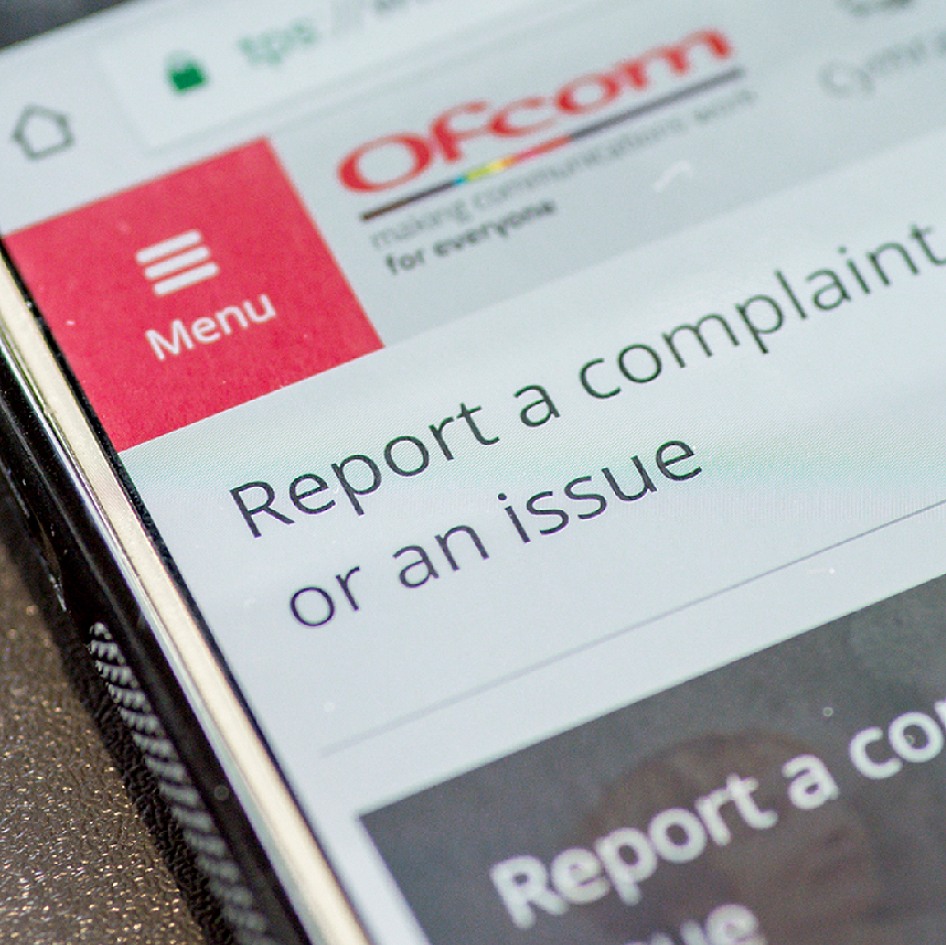Lord Smith – FTTP is Too Niche to Stop FTTC “Fibre Optic Broadband” Ads
Lord Smith of Finsbury (Chris Smith), who is Chairman of the United Kingdom’s Advertising Standards Agency, has put down another complaint against ISPs that promote slower hybrid-fibre FTTC (VDSL) connections as “fibre optic broadband“. Apparently it’s because pure FTTP/H lines are still too “niche,” but he acknowledges that this may change in the future.
The row has been going on for years and stems from the fact that a pure fibre optic line will always be able to deliver significantly faster and more reliable speeds than a service which has some metallic copper cable in its mix, such as in the case of BT’s hybrid Fibre-to-the-Cabinet (FTTC / VDSL), G.fast or Virgin Media’s coax using DOCSIS lines. See our article – Will the Real Fibre Optic Broadband Service Please Stand Up.
Back in 2008 the ASA effectively ruled that FTTC and cable (DOCSIS) technologies could describe themselves as “fibre optic” or “fibre broadband“. At the time the ASA took the view that the copper coax element of Virgin’s network was only a small part of their fibre optic fed network (in theory you could apply that sort of logic to some ADSL or even wireless based networks too).
Some would say that this has resulted in a legacy of confusion, which might have made it harder for consumers to identify the advantages of one approach over the other. But this is likely to become more of a problem now that BT and Virgin Media have both announced major deployments of FTTP/H services, which could help to push related coverage to 4-5 million premises by 2020.
A number of recent ASA complaints have since attempted to overturn or adjust the watchdog’s position (here and here), but none have succeeded. Most recently the Upottery Parish Councillor, Graham Long, informs ISPreview.co.uk that he too began such a complaint against BT’s FTTC advertising in February 2016 and unsurprisingly the ASA rejected it.
Graham Long told ISPreview.co.uk:
“Today, companies like Gigaclear and Hyperoptic are demonstrating that the market for fully fibre broadband provision is growing rapidly and that it is possible to deliver it in many areas funded entirely from commercial investment. BT are receiving £1.7B of public subsidy to deploy FTTC whilst encouraging the public to believe it is fibre to the property. This has enabled BT to sweat their copper assets.
At a meeting last week attended by Bill Murphy, BT’s MD for NGA and my MP Neil Parish, BT had the gall to say that Openreach capital investment in 2015 was the same amount as it was in 2008, because of the 2008 banking crisis! BT certainly do seem to have the ASA and OFCOM singing to their tune. The ASA’s strapline is “Legal, Decent, Honest, Truthful“. By condoning BT’s deceitful fibre optic broadband advertising, the ASA have abandoned honesty and truth. They have therefore also abandoned their primary responsibility. The ASA is not fit for purpose.”
However Graham didn’t give up and continued to pursue the matter through the ASA’s official complaints procedure, but unfortunately this too has now hit an all too familiar wall. In its reply the ASA noted a “lack of significant change” in the coverage and uptake of FTTP/H services around the UK.
The FTTP/H service, delivered from various ISPs, currently covers around 600,000 UK premises passed (educated guess), with Openreach delivering roughly half of those. Admittedly that’s a lot more than it’s had in the past, but overall the national impact remains small, for now.
The ASA further concluded that “consumers interested in a ‘fibre-optic’ service would primarily be concerned with the improved speed and performance that could be delivered in comparison to an ADSL service, rather than being concerned with obtaining the most technologically advanced fibre-optic product available at any cost.”
ASA Statement to Graham Long (8th June 2016)
“While we appreciate that the market will have subsequently developed further and uptake may have increased a little, we note that the provision and take up of FTTP services is very low and consider that it still represents a niche service that the majority of consumers will not be aware of, or familiar with.
In light of the lack of any significant change in the availability and uptake of FTTP in the UK since the ASA Council’s previous ruling, we consider that there is little merit in continuing with a formal investigation to review the issue again, when it is very likely that Council will reach the same conclusion. In essence, we consider that the use of ‘fibre-optic’ to refer to a FTTC service is unlikely to mislead, as consumers are likely to expect a ‘fibre-optic’ service to deliver faster speeds than an a standard ADSL service.
I appreciate that you will be disappointed with this decision particularly given the increase in alternative providers who wish to differentiate themselves from the major ISPs, however, we have to make our assessments on how the average consumer, who will clearly not be as informed as you are regarding these services, will understand the claim.”
Graham then proceeded to raise his complaint directly with the ASA’s Chairman, Lord Smith, who reviewed the decision before ultimately agreeing with the ASA’s original findings. Lord Smith said that the ASA “does not dispute that an FTTP network will deliver a superior service,” but that their decision was still based on “reasonable grounds.”
However Lord Smith does acknowledge that the “marketplace will change” and “consumer expectations will change too,” which he suggested would eventually lead to a situation where people need to choose between FTTC and FTTP rather than today’s market where the choice on Openreach’s network is more between FTTC and ADSL.
Sadly Lord Smith doesn’t appear to acknowledge the forthcoming roll-out of 300-500Mbps G.fast technology to “most of the UK“, which will add another dynamic to the argument. On the other hand he has signalled that the ASA’s position could change in the future, when FTTP/H solutions can reach a more significant number of consumers. So the battle continues.
Mark is a professional technology writer, IT consultant and computer engineer from Dorset (England), he also founded ISPreview in 1999 and enjoys analysing the latest telecoms and broadband developments. Find me on X (Twitter), Mastodon, Facebook and Linkedin.
« New 802.11ac Wave 2 Standard to Boost Home WiFi Network Speeds
Latest UK ISP News
- FTTP (5513)
- BT (3514)
- Politics (2535)
- Openreach (2297)
- Business (2261)
- Building Digital UK (2243)
- FTTC (2043)
- Mobile Broadband (1972)
- Statistics (1788)
- 4G (1663)
- Virgin Media (1619)
- Ofcom Regulation (1460)
- Fibre Optic (1394)
- Wireless Internet (1389)
- FTTH (1381)
























































Comments are closed